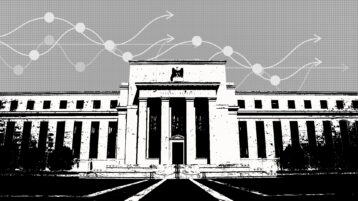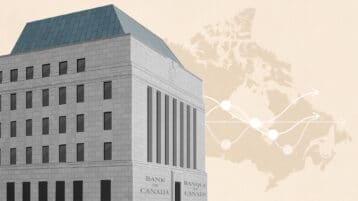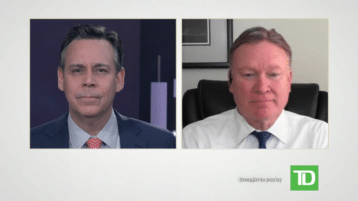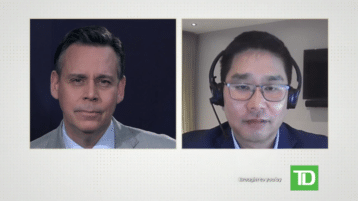Print Transcript
[music]
Hello, I'm Greg Bonnell. It welcome to MoneyTalk Live, brought to you by TD Direct Investing.
Every day, I'll be joined by guests from across TD, many of whom you'll only see here. We'll take you through its moving the markets and answer questions about investing.
Coming up on today show: we'll discuss the outlook for the utility sector and how it's handling rising costs with TD Asset Management Marisa Jones.
And in today's WebBroker education segment, Bryan Rogers will show us how you can find information about GICs on the platform.
So here's how you get in touch with us. Just email moneytalklive@td.com.
Or you can float the viewer response box under the video player your own WebBroker.
Forget our guest of the day, let's give you an update on the markets.
this, of course, will be the last full trading week of 2022, After a bit of a lacklustre start, you can see in Toronto, down about hundred and 54 points, almost a full percent.
Oil is not modestly right now but doesn't seem to be much enthusiasm out there on the equity side.
For some of the big energy names, let's check in on Crescent Point.
It is modestly negative right now, we are at eight bucks and $0.95 per share, down about 1 1/3%. Those a Dye and Durham, a maker of legal software, on the move today. It up 14%. The only headline I could find connected to that one is that they are introducing some new litigation software tools. I don't know if that's the reason, but the stock is up about a buck 73 per share. South of the border, let's check in on the S&P 500. Obviously, at the close of last week, there were two money-losing weeks for American stocks. Not a great start to the week.
Still a lot of concerns. 2022 will deftly go down in the history books as the year of aggressive rate hikes from the central bank. What does 2023 old? People are worried about for recession, higher rates for longer, even after hitting the terminal rate.
It's down about 25 points right now, nothing too dramatic, little more than half a percent. The tech heavy NASDAQ, I am noticing some weakness in tech names on both sides of the border, down about 1 1/3%.
Ford on the headlines recently. The buzzer and this name is that the new electric F150 pickup truck keeps getting price bumps in terms of the sticker price.
Now, the price of one of those vehicles up 40% since its launch. And that's your market update.
the utility sector is often seen as a defensive play in times of market uncertainty.
but with rising inflation, does that still hold true?
Join is more for more on the topic, Marisa Jones, utilities credit analyst with TD Asset Management.
Welcome back to the program.
>> It's nice to be back.
>> Inflation is the story of 2022, and aggressive rate hikes to try to tame inflation, a big part of that story as well. What has the impacting on the utility space?
>> Yes, and I think as most investors know, utilities are a defensive sector. But if you go beyond that, because of that they carried very well compared to the rest of the either equities or fixed income that I look at.
But beyond the essential nature of utilities, you have to look at the fact that the regulated utilitiesare really defensive in terms of being able to absorb higher costs. This is because the rate regimes around the regulation actually allows utilities to pass through rising costs. So the rate structure should allow either higher fuel inputs, bond pricing, whether it be through interest rates and so forth like that to be passed ultimately to the end consumer. And this allows the sector not only to be an essential defensive sector, it allows me to have a more defensive real return for investors.
So I think, looking forward into 2023, you may not expect the same returns or benefit versus the market as we saw in 2022.
But I think if you are thinking, as I am and as you mentioned in your intro remarks, that we are at least expecting an economic slowdown. Maybe it's a recession.
In that situation, I think that, for the reasons I mentioned, I think utilities will still farewell in 2023.
>> As you mentioned, of course, is to regulate its base. They are able to pass on price increases to the consumer. Is there risk, as politicians here more and more from the Elector that they are struggling with not only soaring inflation in consumer costs but the higher rates that are meant to combat that, it's getting pretty tougher household.
Is there a danger that you get political pressure on some of these utilities to say, hey, can you give these people a break?
>> Absolutely. And this is one of a few things I watch for. Firstly, I mentioned that it is a defensive sector.
However, there sorta three areas that I'm watching and what is affordability, as you mentioned, one would be energy security and the other would be sustainability.
So how utilities do through the energy transition and environmental policies. So on the affordably front, which is front and centre now, we saw it in 2022 and I expected to continue to play out, the different-- whether it be the regulators or governments, are playing a role in helping their populations deal with these rising costs. So we are starting to see is that different areas, and you are seeing it in almost every jurisdiction I look at, the government is coming in was some sort of plans to help with portability. The risk is that who bears the costs of it? So whether it be the government, and we are seeing this in many ways, so either the government is giving direct monetary support to customers or to some utilities I've seen, this is actually a net positive, that the government will say, you might have, we are seeing this in, for exam, New York, 60 day arrears are quite high, so we are going to give the utilities some money directly for those customers who are at the lowest affordability. So help them erase their arrears.
So topping the customer and it's helping the utility manage through those kind of risks. So it there are positives within the negatives, we seen a few examples where the government or the regulator will look to ways that they can say, what can we do that the utility shares and some of these supportive measures? Often, utilities are, and they've had plans before 2022 where they help their customers with affordability and with paying their bills. So there have been plans. But now, what I worry about is, if regular says, well, okay, we allow you to have a certain return. Are we may be instead of having a 10%, for example, maybe it should be 9 1/2%.
So that could affect cash flows, that could affect the equity pricing for some of these utilities.
The other example is a very I would say rare, uncommon, but were we saw in Nova Scotia where the government actually came in and jumped over the regulatory process, Nova Scotia Power was in front of its regulator with rates hearing and the government came in and passed legislation saying, we are going to The non-fuel costs for the next two years.
Regardless of the outcome of the rate hearing.
And this, you can look at it from a financial perspective, is not necessarily a huge negative for Nova Scotia Power.
it's not negative so much.
But where it is very negative is sentiment.
Investors, I'm a fixed income analyst.
>>our market participants taking notice of these actions?
>> Absolutely.
S&P, the rating agency, downgraded Nova Scotia Power two notches on the back of that, which is significant.
And ironically, ends up over the long run raising the debt financing costs for the utility, which ends up being borne by… But also the equity side, equity investors invest in aimer, which holds Nova Scotia Power, and there's a big question as to what kind of overhang is there for E Mira and could it be further political influence or disruption for the utility?
So both sides are looking at this and what can they do?
It actually does reduce cash flows, do they have to may be raised equity or something like that or sell assets?
There is a potentially larger impact on the road.
>> That's fascinating stuff. Definitely things to be aware of as an investor in the space. Also just energy security, a huge name for the show. Starting to think about utilities and the role in all this, how does it play in?
Or is it is somewhere else problem?
>> No, it's absolutely everywhere because it's brought home what's going on in geopolitics globally, especially in Europe,is everyone is looking and saying, well, we need that security here, and whether it be in Canada, the US, North America, but also what opportunities are there for us as a producer of natural gas, for example, to export it to Europe and to other areas, to reinforce security of the production?
So we are seeing that everywhere.
What that's doing in terms of pricing, it's hard to say this year but it is an important thing that we, I think, as investors, have to look at two.
>> Fascinating stuff and a great start to the program.
We'll get back to questions about utilities for Marisa Jones in a moment. You can get in touch with us any time. Just email moneytalklive@td.com or you can fill a W response box under the video player on.
right now, let's get you updated on some of the top stories in the world of business and take a look at how the market is trading.
Shares of Tesla are in the spotlight that as investors ponder Elon Musk may soon have more time to focus on the electric vehicle maker. Over the weekend, muskpolled Twitter users, asking if he should step down as CEO of the social media company. More than 17 million votes were cast, with some 57% in favour of musk leaving the top job at Twitter.
Musk said he'd abide by the poll, but what comes next is still unclear. Tesla's down 2 1/2%.
Disney's latest film offering, avatar the way of water, took in some $134 million at the US box office during its opening weekend.
Well it's a big number, did fall short of industry expectations for James Cameron's latest avatar instalment.
Globally, the movie hit $300 million in box office receipts. The film success is not only important to Disney but also as a barometer of audience appetite for blockbusters on the big screen.
Let's take a look at shares of Freshii.
They are on the move today that on news that the healthy food focus franchises being acquired by Foodtastic for $2.3 per share in cash.
In release, the CEO of Foodtastic said the opposition will help them expanded to a new category. While the purchase price represents a 142% premium to Freshii's closing price last Friday, that stock is still well off its all-time highs.
It's 133 points.
Let's check in on the main benchmark indices, we will start home on Bay Street with the TSX Composite Index.
This is the last full trading week of 2022.
It's been a pretty choppy year and today we are down hundred and 55 points, almost a full percent, seeing a lot of strength in the energy space even though we are getting a bit firmer in the price of crude, some of them are lagging sectors. South of the border, their concerns about what 2023 will bring, namely in terms of recessionary fears and where the US Federal Reserve ends on rates, when do they stop and how long they stay there, all weighing on the minds of investors.
Two money-losing weeks for American stocks back to back. Not a great surf this week, down 20 points, a little more than half percent on the S&P 500.
We are back now with Marisa Jones from TD Asset Management, taking your questions about utilities.
Let's get to them. Here's the first off the top.
Will utilities lose popularity with investors as fixed income begins to offer more yield?
Definitely one of the stories of this year, they are getting some yield.
>> Yeah, that is a question we are starting to see more generally as well. Especially in either stocks or bonds or well stocks that are more income FOCUS stocks. As we've seen in the last 10 years, bond yields,bond yields were at such incredible lows. We see now the government rates rising as well as those spreads.
Spreads are starting to come up a little bit. But still, you're seeing this as a?.
Even in the same company, would you rather hold the equity or the bond?
Ultimately, when you move into the bond, you're moving up in quality of forward the capital structure of the company.
So theoretically, it does make sense.
Here TD Asset Management… In reality, it's kind of a tactical approach to looking at a trade because reality is the bonds are a lot less liquid for an individual on a large scale.
You need to be able to try to make this worthwhile.
So I think it's something we are looking at and I think it's quite interesting.
But it's not, in practical ecology, something I see a lot of individuals doing.
>> Now is an investor does their homework into whether they want to be in equity or bonds of the company, what is the screening process like? Are they willing of the same sort of things or when looking at the fixed income space, are the different signposts?
>> I would say that for example if you are in the same sector or the same company, fundamentally, you are looking at the same. So you want to see growth, for example, whether it be in utilities or pipelines.
But you are also looking at both equity and fixed income they are focused on, is that growth sustainable and how is it funded?
Especially with the rise in rates and equity, who needs equity?
So if you are in fixed income, I think you don't have to worry so much about dividend cuts, for example. So if a company has to cut its dividend or raise equity to fund growth, that may be slightly negative, of course, for equity, warez fixed income, it might be neutral or positive. So that might be something you are looking at for the same company, same credit quality, but if they have to cut a dividend, and we are looking at some companies that may have to, or if they have higher fixed rate floating-rate notes in their capital structure, it might mean lower cash flows going forward. That's negative for both equity and fixed income.
So there's a lot of fundamentally I'd say it's quite similar.
In that situation, you're just trying to see where you think equity, of course, you have the flexibility to get the upside. That's the fundamental difference between equity and fixed income. So if you're worried about the downside, you might want to make that move into fixed income.
>> Interesting stuff.
Let's get to the next question now. Can we get Marisa's view on Hydro One?
>> Okay, yeah. Sitting here in Toronto, that's a great Ontario-based company.
I think right now, it's a company or a utility that is, in my view, overlooked by investors. I think there was some government interference going back a few years ago. That has been ironed out. In fact, it's received some positive… >> That was about the executive structure, right?
>> Yes, and about the costs and so forth.
So there is clear government interference and that was not received well by equity or fixed income. That's definitely in the past.
Now, I see the company strategy as very conservative, it's based here in Ontario, I don't see them looking outside of Ontario. They are committed to that and I do think they have enough growth opportunities to sustain them. In fact, they rate their rates and expectations recently from 5% to 6%, so for a company that focused only in regulated businesses in one single province, that's pretty good growth. So I think it is, in looking ahead to 2023 in particular, if you were looking into defensive names, it's a high-quality name that has growth.
It's not a boring utility, it does have some growth opportunities.
It does have some acquisitions within the province that it could do to help us growth as well.
And is doing a lot in terms of working with some Indigenous First Nations groups.
It's quite forward looking, I think, so I like Hydro One.
>> What would be the risk of a name like Hydro One?
Thinking about the fact that large utilities, they have a lot of costs, infrastructure and money is more expensive nowadays.
>> Sure.
So Hydro One, first of all, in the last 10 years, rates were low. But a lot of the companies in this sector have done a good job in terming out their maturity.
So looking at their debt maturity schedule, a lot of them don't have any debt maturing or very little in the next few years. So on that front, Hydro One is well positioned. I think it has a conservative balance sheet. It has zero equity. That's one thing I think is positive for Hydro One, for equity and fixed income.
all of the 6% growth that it's expecting is self-funded so they do not need to go to the equity market.
They will have to have some fixed income needs, but I see it as relatively modest. So I think it's in a good position.
>> Let's go to another question now, a specific when paired with your view on Emera?
>> Emera, soa cover from a fixed income perspective, Nova Scotia Power, stepping back and looking at Emera on a toll, there are few things I would say are mixed.
Not necessarily just negative, but… So Emera's main business, about 50% of it is actually in Florida.
Florida is quite a constructive or positive regulatory regime for utilities.
It has a higher allowed ROE. There's a lot of support in terms of the regulator recognizing that the utilities have to spend in terms of stock market and so forth.
So it's a positive regime.
Then, about 20% rate base is actually based in Nova Scotia, which is material enough but it's not financially that devastating that it might not be allowed to have some cost pass through. So what the company has done, since the government stepped in and said you can have some non-fuel costs allowed or be, I should say, the company came out and said, okay, we are taking the Exit we were spending in Nova Scotia and we are paring it down to maintenance levels and we are taking the rest and putting it into the higher growth area, Florida.
So that's not necessarily a bad thing that I see.
What is a bit of an overhang and I think will be adjust again the sentiment, the negative sentiment around what happened in Nova Scotia and then the fact that its balance sheet is a little stretched and this potential, I see, for America having to potentially issue equity.
And if they've come out and said they want to do that, but you know, I think they might need to. The rating agencies are washing pretty carefully right now.
So I'm cautious on Emera and Nova Scotia Power, but it's not all negative.
>> We talk about Emera having exposure in Florida made me start to he about some other names in the East Coast utilities space. Over the years, I think, making acquisition in the states.
Is there much growth that way by buying American companies?
>> Yes, and I think on one hand, it's kind of behind us and it's partly because valuations have been fairly expensive, making these acquisitions.
I don't think we are in an environment where we want to buy companies as well.
So I don't see that happening as well.
I think overall, those were good acquisitions for the early movers.
So Fordist, but ITC, which is transmission in the US, it owns Tucson, Tucson electric, which is in Arizona.
Emera, even all to gas, made a US acquisition. That's unwell for them. That's more of a turnaround story.
But I don't see that, as a story going forward. But I think they have done very well by those acquisitions, both in diversification and in terms of, again, these higher ROE's in the US had helped them grow.
>> Great stuff, as always, at home, do your own research before making decisions. We will get back your questions for Marisa Jones on utilities in a moment's time. A reminder that you can get in touch with us at any time, just emailmoneytalklive@td.com. Now let's get our educational segment of the day.
The rising GIC rates this year is putting them on the radar of some investors.
If you want to research the asset class, WebBroker has tools that can help. Joining us now for more, Bryan Rogers, Senior client education instructor with TD Direct Investing.
Bryan, great to see you.
Let's talk about where we can start on the platform if someone is interested in taking a look at GICs.
>> Well, thanks, great. GICs are guaranteed investment certificates. They are a fixed income product that investors could use to diversify their portfolio. GICs are issued by trust companies and banks and they have a very low risk profile.
So if we jump into WebBroker, I want to show you where you can find those rates because as you said, they are changing quite often. We went for a long time and we didn't see much of a change but with all the rate increases and hikes, they change quite frequently.
Knowing where to find them is still very important.
Within WebBroker, you want to click on the research tab, just to make sure everyone knows I'm going, I click on research and then you want to look for the GIC Rate Sheet. That's going to take you here.
We are going to see some very short-term GICs. You can actually choose maturity. Here you are seeing a bit of a smaller selection through some of the TD businesses, but you can see the rates here. Remember, these are annual interest rates but they are just showing smaller maturities you can do between 270 to 374 days or 100 8269. These are on a really short term basis.
More commonly people are looking at the one year to five year terms. So you can use the… You can scroll down and you can see them as a whole list. So you have one year, you can see you all the different ones are available.
Some of them are TD, some of them are external. That's a really great thing.
You can buy multiple GICs from different issuers and you can also get additional CDIC insurance if they are from multiple issuers as well.
What we want to show you here is that you're going to see the rates for all the varying GICs.
We are looking at all the one year term at the moment.
You can see there is an annual rate likely start at the top, 5.
0, 5%, there is not a huge variance vacancy was some issuers that some might be higher than others.
You can pick and choose. Often times, you want to choose the highest rate, but you may want to choose based on the issuer as well.
So you can see here, there is a semi annual and monthly interest rate payment option where you might want to get that certain portion of interest paid out monthly into your account if you are doing it as an income stream or annually if it is going to pay at the end of the year. And then when you get into those longer term, like two years, three years, four years, then you have this compound call. On the far right, compound annual, that one is changed every time as you go along if it to multiply her GIC.
>> All right. Good information there for people. They know where to find the information about GICs. They can understand more fully what it all means. What if they want to place a trade? How do you do that in WebBroker?
>> Yeah, for that, I'm gonna jump right back into WebBroker and show everyone.
So from that same page, I would definitely prefer everyone to do it this way because there are multiple ways you can do it.
You can go into the trading tab and start from scratch and use the drop down and kind of find the GIC you're looking for. I find the easiest thing though for everyone to make it as simple as possible is going to the research tab, pull up this rate sheet again. The GIC Rate Sheet. Find the one you're looking for any notice that all of these have underlined so they are all hyperlinked.
So if you are looking for a specific GIC, sale want to go to a one year or Royal Bank of Canada GIC, I would click on 5%, doing an annual compound. You can change what you buy but this will take you to the ticket to buy the GIC and then you can see some important information like the annual rate, the minimum, maximum and so on and then you can modify the selection as well if you want to go back and select something else on an annual rate or you can click on the drop-down and go to semi annual or monthly.
You can do it that way as well. And then you can click on whatever when you want to purchase, say we want to do Scotiabank.
There you go, you have the information there. You are set up with the annual rate, the minimum amount. If you were only having $500, you would need more money to this particular GIC, and then on the right side there is some different things that are showing the type, the term and so on and then renewal instructions.
As of right now, you do have to call into TD Direct Investing if you want an automatic renewal or things of that nature.
Otherwise you do it on an annual basis.
Then use put your dollar amount and you are all set.
You're going to buy the GIC.
>> Great stuff as always. Thanks.
>> Thanks.
>> Bryan Rogers, Senior client education instructor at TD Direct Investing. Make sure to check at the learning centre on my broker for more educational videos, live interactive master classes and upcoming webinars.
Before you back your questions about utilities for Marisa Jones, a reminder of how you get in touch with us.
Do you have a question about investing or what's driving the markets? Our guests are eager to hear what's on your mind, so send us your questions.
There are two ways you can get in touch with us. You can send us an email anytime@moneytalklive@td.com.
Or you can use the question box right below the screen here on WebBroker.
Just writing your question and hit send.
We'll see if one of our guest can get you the answer right here at MoneyTalk Live.
We are big with Marisa Jones, taking your questions about utilities. Let's get to them.
What is your opinion on Algonquin power?
>>This is a name that's been in the news a lot this week.
The company came out with less or guests worse than expected results for Q3.
It's been hit I think higher with interest costs than the market had expected.
I think that firstly it took the market by surprise and then as we are looking forward to it, I like to contrast it to some of the names that we've already spoken about.
For example, if I am looking at Hydro One, Emera, Fordist, they are all very regular. Going back to some of my first remarks about how defensive some of those positions are, Fordis, even though it has different businesses, it's essentially 99% regulated. Hydro One is fully regulated and Emera would be somewhere above 90%. Algonquin power and utilities is roughly 80% regulated, so it is always been more subject to volatility.
the renewal's business is contracted.
This always at risk. And then it's rolled through, it's been more aggressive in its rule through acquisitions and its balance sheet is stretched.
So now it is kind of coming home when you are looking at the impact of floating-rate debt. For example, it's about 22% of its debt. Which again is higher than those same utilities I just mentioned.
and in fact, a lot of companies that I look at.
So there is the balance sheet and lower growth expectations. The company has said it will have an investor day in early 2023,so I'm kind of holding back some of my thoughts until they come out there and say what they expect going forward.
But definitely the market looking at it stretched balance sheet is expecting a dividend cut sometime in early 2023.
So I think that's really riled the equity markets.
I guess you kind of want to see what's going to happen there.
Management has set on the back of all this that it does feel its investment grade ratings as being very important to it.
It relies more heavily on the debt market. So I can understand why they would say that. So in order to preserve it, the investment grade ratings, I do expected as well to have some kind of dividend cut.
Looking forward, it's hard for me to comment until you see the 2023 investor day, but I think you as an investor, one is an investor, would have to sit back and say, well how much of this is already baked into whether it be the bond spreads or the equity… I think that's an individual choice but I would wait until the 2023 investor day to think about that.
>> No shortage of challenges. But what could go right for them as they work through this?
If you come out of that investor day, what would you need to hear?
>> Well, I'm a fixed income person so I would like to see a dividend cup but I know you are an equity person.
That's not clearly a great thing.
I think expectations for growth going forward to come down. I think could be of positive is ironically there is a recent decision that the company in this utilities business was well down the path to acquiring Kentucky utilities and I think the regulator came out and denied it last week.
Not completely.
So the company, the government can appeal this decision, but considering what I just mentioned, the company does have a stretched balance sheet and they were looking to use debt significantly to make its acquisition, interestingly, the equity rallied on Algonquin power, on this denial of the acquisition. So, again, it's another what if.
We'll see what happens if the company proceeds. There is some thought they could use this is some kind of excuse to not proceed with the acquisition.
I understand there is a big fee of some sort but ultimately I think the markets would like that so that could be a positive.
>> Interesting stuff.
Let's go to another question now.
How will the utility sector be impacted by a potential recession?
>> This is all the pieces coming together, the afford ability part.
So the sector, what I look at is composition of the actual utility because some of them are in the US. We have ones that are more integrated and have power peak.
So they might have a bit more challenge passing higher prices through to the consumers if they can't, if they are getting the cost of fuel, if they have to absorb it. So there might be some negative impact there for those that are much more pure regulated transmission and tradition, they are very immune to a recession.
You're talking about fundamental assets that are essential, essentially monopolistic businesses providing services that people need, either heating a home, providing electricity to keep the lights on. See could see some volume pressure financially. You could see it on utilities that have more commercial industrial users then residential, so I look at that.
But ultimately, if you are looking for a defensive sector, it is the best one out there, I think.
>> Let's talk about nuclear. That's been the big story of the year.
Does your guest think nuclear power will continue to make gains in 2023?
> Nuclear is a sector I really like.
We are fortunate in fixed income that we can invest directly in nuclear.
We have Bruce power, for example, has bonds. Ontario Power generation issues bonds as well. So on the fixed income side, we have direct investment opportunities.
In the US, there are some US utilities that have nuclear as well.
But in terms of the overall picture, I view, and here it TD Asset Management generally, viewed as an important component to the energy transition. I don't necessarily see it as a growing proportion of power generation, at least in North America.
Neither in Europe.
but circling around to the energy security PC spoke about earlier, if you havenuclear assets that are already built, but not necessarily having to be built with more construction risk, there might be some that need to be refurbished to have extended lives, I see opportunity there. There is clear support in Ontario, but in the US, there's been more support. There's been some policy support as well through the inflation reduction act, some nuclear credits have come up for the first time that I'm aware of.
There are some new technologies that might make it attractive for new builds.
These are small modular technologies. So you could see these reactors being built. But again, it'll keep that slice of the generation Pifer nuclear. I don't see it declining but nor do I see it as growing.
>> Is their political risk you're in the sense that if you got another event like Fukushima, but I just think of how cold the space God after that, and it's an unknown event and suddenly politicians flee from it. Is that a risk here with this technology?
>> Sure, I think so. And again, that is more, I would argue, more headline risk because when we actually looked at the real damage and for example debt, it's not as large as anyone, just reading headlines, with think.
But it's always a bit of a risk. But you're looking at jurisdictions like Ontario where we've had nuclear, it generates 60% of our power here in the province, and it's been doing that safely for a long time.
So I think there's a lot of support here. So that's why one of the arguments I would say is you might not see a lot of new build and you might see the new build on a smaller scale so there's less risk, less risk financially in terms of building and less risk and other senses.
> I remember several weeks back seeing a headline about how long Pickering generation had been around for.
That seemed like a long time ago but it was the euros born. We'll go back to your questions for Marisa Jones on utilities in just a moment.
As always, do your own research before you make any investment decisions and or minor lead and get in touch with us at any time.
Do you have a question about investing or with on the markets? Argus are eager to hear what's on your mind so send us your questions. There are two ways you can get in touch with us.
You can send us an emailanytime@moneytalklive@td.com or you can use the question box right below the screen here on WebBroker.
Just write in your question and hit send. We will see if one of our guest can get you the answer right here at MoneyTalk Live.
As the Bank of Canada nears the end of its rate hiking cycle, the pain for Canadian householdsMight just be beginning.
That's from our corporate from TD Economics.
For more on this, we are joined by Anthony Okolie.
> TD Economics is that debt service costs for Canadians will come fully from higher interest payments which, on average, are expected to rise by 6% by the end of 2023, and even in the absence of any significant reversals in interest rates, TD Economics as the debt servicing ratio will soar to a new record before peeking in 2024.
Of course, driving that increase will be households taking on credit at market rates. As the chart shows, households will be spending more debt payments as a percentage of disposable income next year.
Debt servicing costs will continue to rise and TD Economics predict that it's going to rise above 16% by the end of 2023. New borrowers are also starting to feel the pain of the Bank of Canada's 400 basis point rate hike since March.
A legacy of the pandemic has been the jump in households that are taking on variable rate mortgages.
And as the chart shows, the share of variable-rate mortgages actually jumped from 6% in the fourth quarter of 2019, to more than 50% in the first quarter of this year, driven by record low interest rates.
For variable rate mortgage holders with fixed rate payments, what we are seeing is that because of the Bank of Canada rate hikes, the amortization will rise automatically.
Those are looking to increase about a point but once those borrowers hit rates at which they are no longer covering any principal, they may have to raise their payments going forward and of course, this is going to increase the pain for many of these households. For fixed rate mortgage holders though, and estimated 13 to 18% of these mortgage holders will face renewals next year at rates that are at the highest they've been in 20 years. The bottom line, even with slowing household debt growth and some increases in the average amortization, debt payments are still set to rise and exceed the pre-pandemic levels peak of 15%. Greg?
> Course, this puts the Bank of Canada in an interesting position because of the dynamic we have with our housing market, the amount of household that we have in the pain as you laid out there that we are going to feel in terms of household budgets.
What does TD Economics think about rates next year given our specific circumstances?
>> TD Economics still expects the Bank of Canada to hike interest rates and other for 25 basis points which would bring the overallrate of 4.5% in early 2023. With interest rates expected to stay elevated through most of next year, we believe that the debt service ratio, is going to put more pressure on Canadian households and their finances throughout next year.
>> Interesting stuff. Interesting your head.
>> My pleasure.
>>money talks Anthony Okolie. We will check in on the market.
This is the last full week of trading on 2022.
This is the last five day run we've got until the calendar flips. 19,281, 162 points down, a little shy 1% on the TSX Composite Index.
There is some firmness of the price of crude but let's check out the big energy names.
Suncor, there is is flat on the session.
40.71 per share, down a little less than 80% there.
Let's check in on Freshii.
Got news this morning that they are being taken out.
The stock popping about 132% on the session, it's well off its all-time highs, but there's a big jump in the name today. South of the border heading into 2023, the question in is about one is the Fed going to stop and how long are they going to stay there?
is going to be a pretty challenging year in 2023.
the S&P 500 is down almost 25 points radio. The NASDAQ a little bit more to the downside, down more than a full percent.
In Disney, Avatar had a big weekend but not as big as anticipated.
They are down about 3 3/4 of a percent.
We are back now with Marisa Jones from TD Asset Management, talking utilities.
Let's talk about the pipeline space.
Are there opportunities in the pipeline space?
>> Yes, pipelines looking forward to 2023, I think there are opportunities. Back in 2022, generally, they did well.
Not to the same standards my utility space, but pipelines, for they would say most of their balance sheets are quite good, which is very important right now. So either they, again, in the last 10 years, a lot of them have used that opportunity of really low rates to turn up the debt and lock in for a fixed rate debt 430 year maturity.
So again, for the next couple years, I think they are in a quite good position.
In terms of demand, there is the offsetting impact of either the costs of rising fuel prices and oil prices and so forth for the end consumers, whether they be residential or commercial, and then you have the rising costs overall, so you have construction costs if there are large projects. To those of the negatives.
Generally, what we are seeing still is an expectation for high demand and this because even in somewhat of a recessionary period, I think there is such a demand for this fuel or energy security that we talked about.
So this may be a different type of demand we will see three different periods and I expect that to continue through 2023.
So I think what I would do is look at the companies that have growth, because a lot of them do have growth, but also have either very strong contracts, so some of the names that I've looked at, so Enbridge, for example, it is going through some re-contracting right now but generally speaking, its main contract look more similar to a utility in terms of rates than it does a long-term power contract.
So there's a lot of stability there and things like interest can be built into these contracts. So there's a lot of support to the downside. So I think Enbridge is good. Going forward in 2023, it's come out and said it's had a lot of growth opportunities this year.
It's really looking at LNG as an opportunity, and this is different than what they've been doing the last five, 10 years plus. So I think there is new opportunities that I see as exciting.
>> What would be a risk?
>> A risk for Enbridge.
>> For any pipeline?
>>again, I'd say broader speaking big names that have balance sheets that are less pristine. In contrast, I would say there is TransCanada which is a name I actually really like, fundamentally, and I think it's important to acknowledge that it has a very valuable and fundamental infrastructure in place. But right at this current moment, became into 2022 with higher debt levels than Enbridge which is its obvious compact and it has done well with that. It hasn't really needed to pay down as quickly some of the other companies. Right now, we are seeing, to fund some of this growth, the company has said it wants to sell assets but we are in an environment that may not be conducive to selling assets.
So it's not necessarily a fundamental negative long term, but I think there's a lot of headwinds for transatlantic Canada or TC Energy as opposed to something like Enbridge.
>> Interesting stuff. Always fascinating to have you here.
> Thank you very much. It was great to be here.
>> Our thanks to Marisa Jones, utilities credit analyst at TD Asset Management.
Stay tuned, on Tuesday, Nicole Ewing, director of tax and estate planning at TD Wealth will be our guest taking your questions about personal finance.
Get a head start on your questions by emailing us@moneytalklive@td.com.
that's all we have of the show today.
Take care!
[music]
Hello, I'm Greg Bonnell. It welcome to MoneyTalk Live, brought to you by TD Direct Investing.
Every day, I'll be joined by guests from across TD, many of whom you'll only see here. We'll take you through its moving the markets and answer questions about investing.
Coming up on today show: we'll discuss the outlook for the utility sector and how it's handling rising costs with TD Asset Management Marisa Jones.
And in today's WebBroker education segment, Bryan Rogers will show us how you can find information about GICs on the platform.
So here's how you get in touch with us. Just email moneytalklive@td.com.
Or you can float the viewer response box under the video player your own WebBroker.
Forget our guest of the day, let's give you an update on the markets.
this, of course, will be the last full trading week of 2022, After a bit of a lacklustre start, you can see in Toronto, down about hundred and 54 points, almost a full percent.
Oil is not modestly right now but doesn't seem to be much enthusiasm out there on the equity side.
For some of the big energy names, let's check in on Crescent Point.
It is modestly negative right now, we are at eight bucks and $0.95 per share, down about 1 1/3%. Those a Dye and Durham, a maker of legal software, on the move today. It up 14%. The only headline I could find connected to that one is that they are introducing some new litigation software tools. I don't know if that's the reason, but the stock is up about a buck 73 per share. South of the border, let's check in on the S&P 500. Obviously, at the close of last week, there were two money-losing weeks for American stocks. Not a great start to the week.
Still a lot of concerns. 2022 will deftly go down in the history books as the year of aggressive rate hikes from the central bank. What does 2023 old? People are worried about for recession, higher rates for longer, even after hitting the terminal rate.
It's down about 25 points right now, nothing too dramatic, little more than half a percent. The tech heavy NASDAQ, I am noticing some weakness in tech names on both sides of the border, down about 1 1/3%.
Ford on the headlines recently. The buzzer and this name is that the new electric F150 pickup truck keeps getting price bumps in terms of the sticker price.
Now, the price of one of those vehicles up 40% since its launch. And that's your market update.
the utility sector is often seen as a defensive play in times of market uncertainty.
but with rising inflation, does that still hold true?
Join is more for more on the topic, Marisa Jones, utilities credit analyst with TD Asset Management.
Welcome back to the program.
>> It's nice to be back.
>> Inflation is the story of 2022, and aggressive rate hikes to try to tame inflation, a big part of that story as well. What has the impacting on the utility space?
>> Yes, and I think as most investors know, utilities are a defensive sector. But if you go beyond that, because of that they carried very well compared to the rest of the either equities or fixed income that I look at.
But beyond the essential nature of utilities, you have to look at the fact that the regulated utilitiesare really defensive in terms of being able to absorb higher costs. This is because the rate regimes around the regulation actually allows utilities to pass through rising costs. So the rate structure should allow either higher fuel inputs, bond pricing, whether it be through interest rates and so forth like that to be passed ultimately to the end consumer. And this allows the sector not only to be an essential defensive sector, it allows me to have a more defensive real return for investors.
So I think, looking forward into 2023, you may not expect the same returns or benefit versus the market as we saw in 2022.
But I think if you are thinking, as I am and as you mentioned in your intro remarks, that we are at least expecting an economic slowdown. Maybe it's a recession.
In that situation, I think that, for the reasons I mentioned, I think utilities will still farewell in 2023.
>> As you mentioned, of course, is to regulate its base. They are able to pass on price increases to the consumer. Is there risk, as politicians here more and more from the Elector that they are struggling with not only soaring inflation in consumer costs but the higher rates that are meant to combat that, it's getting pretty tougher household.
Is there a danger that you get political pressure on some of these utilities to say, hey, can you give these people a break?
>> Absolutely. And this is one of a few things I watch for. Firstly, I mentioned that it is a defensive sector.
However, there sorta three areas that I'm watching and what is affordability, as you mentioned, one would be energy security and the other would be sustainability.
So how utilities do through the energy transition and environmental policies. So on the affordably front, which is front and centre now, we saw it in 2022 and I expected to continue to play out, the different-- whether it be the regulators or governments, are playing a role in helping their populations deal with these rising costs. So we are starting to see is that different areas, and you are seeing it in almost every jurisdiction I look at, the government is coming in was some sort of plans to help with portability. The risk is that who bears the costs of it? So whether it be the government, and we are seeing this in many ways, so either the government is giving direct monetary support to customers or to some utilities I've seen, this is actually a net positive, that the government will say, you might have, we are seeing this in, for exam, New York, 60 day arrears are quite high, so we are going to give the utilities some money directly for those customers who are at the lowest affordability. So help them erase their arrears.
So topping the customer and it's helping the utility manage through those kind of risks. So it there are positives within the negatives, we seen a few examples where the government or the regulator will look to ways that they can say, what can we do that the utility shares and some of these supportive measures? Often, utilities are, and they've had plans before 2022 where they help their customers with affordability and with paying their bills. So there have been plans. But now, what I worry about is, if regular says, well, okay, we allow you to have a certain return. Are we may be instead of having a 10%, for example, maybe it should be 9 1/2%.
So that could affect cash flows, that could affect the equity pricing for some of these utilities.
The other example is a very I would say rare, uncommon, but were we saw in Nova Scotia where the government actually came in and jumped over the regulatory process, Nova Scotia Power was in front of its regulator with rates hearing and the government came in and passed legislation saying, we are going to The non-fuel costs for the next two years.
Regardless of the outcome of the rate hearing.
And this, you can look at it from a financial perspective, is not necessarily a huge negative for Nova Scotia Power.
it's not negative so much.
But where it is very negative is sentiment.
Investors, I'm a fixed income analyst.
>>our market participants taking notice of these actions?
>> Absolutely.
S&P, the rating agency, downgraded Nova Scotia Power two notches on the back of that, which is significant.
And ironically, ends up over the long run raising the debt financing costs for the utility, which ends up being borne by… But also the equity side, equity investors invest in aimer, which holds Nova Scotia Power, and there's a big question as to what kind of overhang is there for E Mira and could it be further political influence or disruption for the utility?
So both sides are looking at this and what can they do?
It actually does reduce cash flows, do they have to may be raised equity or something like that or sell assets?
There is a potentially larger impact on the road.
>> That's fascinating stuff. Definitely things to be aware of as an investor in the space. Also just energy security, a huge name for the show. Starting to think about utilities and the role in all this, how does it play in?
Or is it is somewhere else problem?
>> No, it's absolutely everywhere because it's brought home what's going on in geopolitics globally, especially in Europe,is everyone is looking and saying, well, we need that security here, and whether it be in Canada, the US, North America, but also what opportunities are there for us as a producer of natural gas, for example, to export it to Europe and to other areas, to reinforce security of the production?
So we are seeing that everywhere.
What that's doing in terms of pricing, it's hard to say this year but it is an important thing that we, I think, as investors, have to look at two.
>> Fascinating stuff and a great start to the program.
We'll get back to questions about utilities for Marisa Jones in a moment. You can get in touch with us any time. Just email moneytalklive@td.com or you can fill a W response box under the video player on.
right now, let's get you updated on some of the top stories in the world of business and take a look at how the market is trading.
Shares of Tesla are in the spotlight that as investors ponder Elon Musk may soon have more time to focus on the electric vehicle maker. Over the weekend, muskpolled Twitter users, asking if he should step down as CEO of the social media company. More than 17 million votes were cast, with some 57% in favour of musk leaving the top job at Twitter.
Musk said he'd abide by the poll, but what comes next is still unclear. Tesla's down 2 1/2%.
Disney's latest film offering, avatar the way of water, took in some $134 million at the US box office during its opening weekend.
Well it's a big number, did fall short of industry expectations for James Cameron's latest avatar instalment.
Globally, the movie hit $300 million in box office receipts. The film success is not only important to Disney but also as a barometer of audience appetite for blockbusters on the big screen.
Let's take a look at shares of Freshii.
They are on the move today that on news that the healthy food focus franchises being acquired by Foodtastic for $2.3 per share in cash.
In release, the CEO of Foodtastic said the opposition will help them expanded to a new category. While the purchase price represents a 142% premium to Freshii's closing price last Friday, that stock is still well off its all-time highs.
It's 133 points.
Let's check in on the main benchmark indices, we will start home on Bay Street with the TSX Composite Index.
This is the last full trading week of 2022.
It's been a pretty choppy year and today we are down hundred and 55 points, almost a full percent, seeing a lot of strength in the energy space even though we are getting a bit firmer in the price of crude, some of them are lagging sectors. South of the border, their concerns about what 2023 will bring, namely in terms of recessionary fears and where the US Federal Reserve ends on rates, when do they stop and how long they stay there, all weighing on the minds of investors.
Two money-losing weeks for American stocks back to back. Not a great surf this week, down 20 points, a little more than half percent on the S&P 500.
We are back now with Marisa Jones from TD Asset Management, taking your questions about utilities.
Let's get to them. Here's the first off the top.
Will utilities lose popularity with investors as fixed income begins to offer more yield?
Definitely one of the stories of this year, they are getting some yield.
>> Yeah, that is a question we are starting to see more generally as well. Especially in either stocks or bonds or well stocks that are more income FOCUS stocks. As we've seen in the last 10 years, bond yields,bond yields were at such incredible lows. We see now the government rates rising as well as those spreads.
Spreads are starting to come up a little bit. But still, you're seeing this as a?.
Even in the same company, would you rather hold the equity or the bond?
Ultimately, when you move into the bond, you're moving up in quality of forward the capital structure of the company.
So theoretically, it does make sense.
Here TD Asset Management… In reality, it's kind of a tactical approach to looking at a trade because reality is the bonds are a lot less liquid for an individual on a large scale.
You need to be able to try to make this worthwhile.
So I think it's something we are looking at and I think it's quite interesting.
But it's not, in practical ecology, something I see a lot of individuals doing.
>> Now is an investor does their homework into whether they want to be in equity or bonds of the company, what is the screening process like? Are they willing of the same sort of things or when looking at the fixed income space, are the different signposts?
>> I would say that for example if you are in the same sector or the same company, fundamentally, you are looking at the same. So you want to see growth, for example, whether it be in utilities or pipelines.
But you are also looking at both equity and fixed income they are focused on, is that growth sustainable and how is it funded?
Especially with the rise in rates and equity, who needs equity?
So if you are in fixed income, I think you don't have to worry so much about dividend cuts, for example. So if a company has to cut its dividend or raise equity to fund growth, that may be slightly negative, of course, for equity, warez fixed income, it might be neutral or positive. So that might be something you are looking at for the same company, same credit quality, but if they have to cut a dividend, and we are looking at some companies that may have to, or if they have higher fixed rate floating-rate notes in their capital structure, it might mean lower cash flows going forward. That's negative for both equity and fixed income.
So there's a lot of fundamentally I'd say it's quite similar.
In that situation, you're just trying to see where you think equity, of course, you have the flexibility to get the upside. That's the fundamental difference between equity and fixed income. So if you're worried about the downside, you might want to make that move into fixed income.
>> Interesting stuff.
Let's get to the next question now. Can we get Marisa's view on Hydro One?
>> Okay, yeah. Sitting here in Toronto, that's a great Ontario-based company.
I think right now, it's a company or a utility that is, in my view, overlooked by investors. I think there was some government interference going back a few years ago. That has been ironed out. In fact, it's received some positive… >> That was about the executive structure, right?
>> Yes, and about the costs and so forth.
So there is clear government interference and that was not received well by equity or fixed income. That's definitely in the past.
Now, I see the company strategy as very conservative, it's based here in Ontario, I don't see them looking outside of Ontario. They are committed to that and I do think they have enough growth opportunities to sustain them. In fact, they rate their rates and expectations recently from 5% to 6%, so for a company that focused only in regulated businesses in one single province, that's pretty good growth. So I think it is, in looking ahead to 2023 in particular, if you were looking into defensive names, it's a high-quality name that has growth.
It's not a boring utility, it does have some growth opportunities.
It does have some acquisitions within the province that it could do to help us growth as well.
And is doing a lot in terms of working with some Indigenous First Nations groups.
It's quite forward looking, I think, so I like Hydro One.
>> What would be the risk of a name like Hydro One?
Thinking about the fact that large utilities, they have a lot of costs, infrastructure and money is more expensive nowadays.
>> Sure.
So Hydro One, first of all, in the last 10 years, rates were low. But a lot of the companies in this sector have done a good job in terming out their maturity.
So looking at their debt maturity schedule, a lot of them don't have any debt maturing or very little in the next few years. So on that front, Hydro One is well positioned. I think it has a conservative balance sheet. It has zero equity. That's one thing I think is positive for Hydro One, for equity and fixed income.
all of the 6% growth that it's expecting is self-funded so they do not need to go to the equity market.
They will have to have some fixed income needs, but I see it as relatively modest. So I think it's in a good position.
>> Let's go to another question now, a specific when paired with your view on Emera?
>> Emera, soa cover from a fixed income perspective, Nova Scotia Power, stepping back and looking at Emera on a toll, there are few things I would say are mixed.
Not necessarily just negative, but… So Emera's main business, about 50% of it is actually in Florida.
Florida is quite a constructive or positive regulatory regime for utilities.
It has a higher allowed ROE. There's a lot of support in terms of the regulator recognizing that the utilities have to spend in terms of stock market and so forth.
So it's a positive regime.
Then, about 20% rate base is actually based in Nova Scotia, which is material enough but it's not financially that devastating that it might not be allowed to have some cost pass through. So what the company has done, since the government stepped in and said you can have some non-fuel costs allowed or be, I should say, the company came out and said, okay, we are taking the Exit we were spending in Nova Scotia and we are paring it down to maintenance levels and we are taking the rest and putting it into the higher growth area, Florida.
So that's not necessarily a bad thing that I see.
What is a bit of an overhang and I think will be adjust again the sentiment, the negative sentiment around what happened in Nova Scotia and then the fact that its balance sheet is a little stretched and this potential, I see, for America having to potentially issue equity.
And if they've come out and said they want to do that, but you know, I think they might need to. The rating agencies are washing pretty carefully right now.
So I'm cautious on Emera and Nova Scotia Power, but it's not all negative.
>> We talk about Emera having exposure in Florida made me start to he about some other names in the East Coast utilities space. Over the years, I think, making acquisition in the states.
Is there much growth that way by buying American companies?
>> Yes, and I think on one hand, it's kind of behind us and it's partly because valuations have been fairly expensive, making these acquisitions.
I don't think we are in an environment where we want to buy companies as well.
So I don't see that happening as well.
I think overall, those were good acquisitions for the early movers.
So Fordist, but ITC, which is transmission in the US, it owns Tucson, Tucson electric, which is in Arizona.
Emera, even all to gas, made a US acquisition. That's unwell for them. That's more of a turnaround story.
But I don't see that, as a story going forward. But I think they have done very well by those acquisitions, both in diversification and in terms of, again, these higher ROE's in the US had helped them grow.
>> Great stuff, as always, at home, do your own research before making decisions. We will get back your questions for Marisa Jones on utilities in a moment's time. A reminder that you can get in touch with us at any time, just emailmoneytalklive@td.com. Now let's get our educational segment of the day.
The rising GIC rates this year is putting them on the radar of some investors.
If you want to research the asset class, WebBroker has tools that can help. Joining us now for more, Bryan Rogers, Senior client education instructor with TD Direct Investing.
Bryan, great to see you.
Let's talk about where we can start on the platform if someone is interested in taking a look at GICs.
>> Well, thanks, great. GICs are guaranteed investment certificates. They are a fixed income product that investors could use to diversify their portfolio. GICs are issued by trust companies and banks and they have a very low risk profile.
So if we jump into WebBroker, I want to show you where you can find those rates because as you said, they are changing quite often. We went for a long time and we didn't see much of a change but with all the rate increases and hikes, they change quite frequently.
Knowing where to find them is still very important.
Within WebBroker, you want to click on the research tab, just to make sure everyone knows I'm going, I click on research and then you want to look for the GIC Rate Sheet. That's going to take you here.
We are going to see some very short-term GICs. You can actually choose maturity. Here you are seeing a bit of a smaller selection through some of the TD businesses, but you can see the rates here. Remember, these are annual interest rates but they are just showing smaller maturities you can do between 270 to 374 days or 100 8269. These are on a really short term basis.
More commonly people are looking at the one year to five year terms. So you can use the… You can scroll down and you can see them as a whole list. So you have one year, you can see you all the different ones are available.
Some of them are TD, some of them are external. That's a really great thing.
You can buy multiple GICs from different issuers and you can also get additional CDIC insurance if they are from multiple issuers as well.
What we want to show you here is that you're going to see the rates for all the varying GICs.
We are looking at all the one year term at the moment.
You can see there is an annual rate likely start at the top, 5.
0, 5%, there is not a huge variance vacancy was some issuers that some might be higher than others.
You can pick and choose. Often times, you want to choose the highest rate, but you may want to choose based on the issuer as well.
So you can see here, there is a semi annual and monthly interest rate payment option where you might want to get that certain portion of interest paid out monthly into your account if you are doing it as an income stream or annually if it is going to pay at the end of the year. And then when you get into those longer term, like two years, three years, four years, then you have this compound call. On the far right, compound annual, that one is changed every time as you go along if it to multiply her GIC.
>> All right. Good information there for people. They know where to find the information about GICs. They can understand more fully what it all means. What if they want to place a trade? How do you do that in WebBroker?
>> Yeah, for that, I'm gonna jump right back into WebBroker and show everyone.
So from that same page, I would definitely prefer everyone to do it this way because there are multiple ways you can do it.
You can go into the trading tab and start from scratch and use the drop down and kind of find the GIC you're looking for. I find the easiest thing though for everyone to make it as simple as possible is going to the research tab, pull up this rate sheet again. The GIC Rate Sheet. Find the one you're looking for any notice that all of these have underlined so they are all hyperlinked.
So if you are looking for a specific GIC, sale want to go to a one year or Royal Bank of Canada GIC, I would click on 5%, doing an annual compound. You can change what you buy but this will take you to the ticket to buy the GIC and then you can see some important information like the annual rate, the minimum, maximum and so on and then you can modify the selection as well if you want to go back and select something else on an annual rate or you can click on the drop-down and go to semi annual or monthly.
You can do it that way as well. And then you can click on whatever when you want to purchase, say we want to do Scotiabank.
There you go, you have the information there. You are set up with the annual rate, the minimum amount. If you were only having $500, you would need more money to this particular GIC, and then on the right side there is some different things that are showing the type, the term and so on and then renewal instructions.
As of right now, you do have to call into TD Direct Investing if you want an automatic renewal or things of that nature.
Otherwise you do it on an annual basis.
Then use put your dollar amount and you are all set.
You're going to buy the GIC.
>> Great stuff as always. Thanks.
>> Thanks.
>> Bryan Rogers, Senior client education instructor at TD Direct Investing. Make sure to check at the learning centre on my broker for more educational videos, live interactive master classes and upcoming webinars.
Before you back your questions about utilities for Marisa Jones, a reminder of how you get in touch with us.
Do you have a question about investing or what's driving the markets? Our guests are eager to hear what's on your mind, so send us your questions.
There are two ways you can get in touch with us. You can send us an email anytime@moneytalklive@td.com.
Or you can use the question box right below the screen here on WebBroker.
Just writing your question and hit send.
We'll see if one of our guest can get you the answer right here at MoneyTalk Live.
We are big with Marisa Jones, taking your questions about utilities. Let's get to them.
What is your opinion on Algonquin power?
>>This is a name that's been in the news a lot this week.
The company came out with less or guests worse than expected results for Q3.
It's been hit I think higher with interest costs than the market had expected.
I think that firstly it took the market by surprise and then as we are looking forward to it, I like to contrast it to some of the names that we've already spoken about.
For example, if I am looking at Hydro One, Emera, Fordist, they are all very regular. Going back to some of my first remarks about how defensive some of those positions are, Fordis, even though it has different businesses, it's essentially 99% regulated. Hydro One is fully regulated and Emera would be somewhere above 90%. Algonquin power and utilities is roughly 80% regulated, so it is always been more subject to volatility.
the renewal's business is contracted.
This always at risk. And then it's rolled through, it's been more aggressive in its rule through acquisitions and its balance sheet is stretched.
So now it is kind of coming home when you are looking at the impact of floating-rate debt. For example, it's about 22% of its debt. Which again is higher than those same utilities I just mentioned.
and in fact, a lot of companies that I look at.
So there is the balance sheet and lower growth expectations. The company has said it will have an investor day in early 2023,so I'm kind of holding back some of my thoughts until they come out there and say what they expect going forward.
But definitely the market looking at it stretched balance sheet is expecting a dividend cut sometime in early 2023.
So I think that's really riled the equity markets.
I guess you kind of want to see what's going to happen there.
Management has set on the back of all this that it does feel its investment grade ratings as being very important to it.
It relies more heavily on the debt market. So I can understand why they would say that. So in order to preserve it, the investment grade ratings, I do expected as well to have some kind of dividend cut.
Looking forward, it's hard for me to comment until you see the 2023 investor day, but I think you as an investor, one is an investor, would have to sit back and say, well how much of this is already baked into whether it be the bond spreads or the equity… I think that's an individual choice but I would wait until the 2023 investor day to think about that.
>> No shortage of challenges. But what could go right for them as they work through this?
If you come out of that investor day, what would you need to hear?
>> Well, I'm a fixed income person so I would like to see a dividend cup but I know you are an equity person.
That's not clearly a great thing.
I think expectations for growth going forward to come down. I think could be of positive is ironically there is a recent decision that the company in this utilities business was well down the path to acquiring Kentucky utilities and I think the regulator came out and denied it last week.
Not completely.
So the company, the government can appeal this decision, but considering what I just mentioned, the company does have a stretched balance sheet and they were looking to use debt significantly to make its acquisition, interestingly, the equity rallied on Algonquin power, on this denial of the acquisition. So, again, it's another what if.
We'll see what happens if the company proceeds. There is some thought they could use this is some kind of excuse to not proceed with the acquisition.
I understand there is a big fee of some sort but ultimately I think the markets would like that so that could be a positive.
>> Interesting stuff.
Let's go to another question now.
How will the utility sector be impacted by a potential recession?
>> This is all the pieces coming together, the afford ability part.
So the sector, what I look at is composition of the actual utility because some of them are in the US. We have ones that are more integrated and have power peak.
So they might have a bit more challenge passing higher prices through to the consumers if they can't, if they are getting the cost of fuel, if they have to absorb it. So there might be some negative impact there for those that are much more pure regulated transmission and tradition, they are very immune to a recession.
You're talking about fundamental assets that are essential, essentially monopolistic businesses providing services that people need, either heating a home, providing electricity to keep the lights on. See could see some volume pressure financially. You could see it on utilities that have more commercial industrial users then residential, so I look at that.
But ultimately, if you are looking for a defensive sector, it is the best one out there, I think.
>> Let's talk about nuclear. That's been the big story of the year.
Does your guest think nuclear power will continue to make gains in 2023?
> Nuclear is a sector I really like.
We are fortunate in fixed income that we can invest directly in nuclear.
We have Bruce power, for example, has bonds. Ontario Power generation issues bonds as well. So on the fixed income side, we have direct investment opportunities.
In the US, there are some US utilities that have nuclear as well.
But in terms of the overall picture, I view, and here it TD Asset Management generally, viewed as an important component to the energy transition. I don't necessarily see it as a growing proportion of power generation, at least in North America.
Neither in Europe.
but circling around to the energy security PC spoke about earlier, if you havenuclear assets that are already built, but not necessarily having to be built with more construction risk, there might be some that need to be refurbished to have extended lives, I see opportunity there. There is clear support in Ontario, but in the US, there's been more support. There's been some policy support as well through the inflation reduction act, some nuclear credits have come up for the first time that I'm aware of.
There are some new technologies that might make it attractive for new builds.
These are small modular technologies. So you could see these reactors being built. But again, it'll keep that slice of the generation Pifer nuclear. I don't see it declining but nor do I see it as growing.
>> Is their political risk you're in the sense that if you got another event like Fukushima, but I just think of how cold the space God after that, and it's an unknown event and suddenly politicians flee from it. Is that a risk here with this technology?
>> Sure, I think so. And again, that is more, I would argue, more headline risk because when we actually looked at the real damage and for example debt, it's not as large as anyone, just reading headlines, with think.
But it's always a bit of a risk. But you're looking at jurisdictions like Ontario where we've had nuclear, it generates 60% of our power here in the province, and it's been doing that safely for a long time.
So I think there's a lot of support here. So that's why one of the arguments I would say is you might not see a lot of new build and you might see the new build on a smaller scale so there's less risk, less risk financially in terms of building and less risk and other senses.
> I remember several weeks back seeing a headline about how long Pickering generation had been around for.
That seemed like a long time ago but it was the euros born. We'll go back to your questions for Marisa Jones on utilities in just a moment.
As always, do your own research before you make any investment decisions and or minor lead and get in touch with us at any time.
Do you have a question about investing or with on the markets? Argus are eager to hear what's on your mind so send us your questions. There are two ways you can get in touch with us.
You can send us an emailanytime@moneytalklive@td.com or you can use the question box right below the screen here on WebBroker.
Just write in your question and hit send. We will see if one of our guest can get you the answer right here at MoneyTalk Live.
As the Bank of Canada nears the end of its rate hiking cycle, the pain for Canadian householdsMight just be beginning.
That's from our corporate from TD Economics.
For more on this, we are joined by Anthony Okolie.
> TD Economics is that debt service costs for Canadians will come fully from higher interest payments which, on average, are expected to rise by 6% by the end of 2023, and even in the absence of any significant reversals in interest rates, TD Economics as the debt servicing ratio will soar to a new record before peeking in 2024.
Of course, driving that increase will be households taking on credit at market rates. As the chart shows, households will be spending more debt payments as a percentage of disposable income next year.
Debt servicing costs will continue to rise and TD Economics predict that it's going to rise above 16% by the end of 2023. New borrowers are also starting to feel the pain of the Bank of Canada's 400 basis point rate hike since March.
A legacy of the pandemic has been the jump in households that are taking on variable rate mortgages.
And as the chart shows, the share of variable-rate mortgages actually jumped from 6% in the fourth quarter of 2019, to more than 50% in the first quarter of this year, driven by record low interest rates.
For variable rate mortgage holders with fixed rate payments, what we are seeing is that because of the Bank of Canada rate hikes, the amortization will rise automatically.
Those are looking to increase about a point but once those borrowers hit rates at which they are no longer covering any principal, they may have to raise their payments going forward and of course, this is going to increase the pain for many of these households. For fixed rate mortgage holders though, and estimated 13 to 18% of these mortgage holders will face renewals next year at rates that are at the highest they've been in 20 years. The bottom line, even with slowing household debt growth and some increases in the average amortization, debt payments are still set to rise and exceed the pre-pandemic levels peak of 15%. Greg?
> Course, this puts the Bank of Canada in an interesting position because of the dynamic we have with our housing market, the amount of household that we have in the pain as you laid out there that we are going to feel in terms of household budgets.
What does TD Economics think about rates next year given our specific circumstances?
>> TD Economics still expects the Bank of Canada to hike interest rates and other for 25 basis points which would bring the overallrate of 4.5% in early 2023. With interest rates expected to stay elevated through most of next year, we believe that the debt service ratio, is going to put more pressure on Canadian households and their finances throughout next year.
>> Interesting stuff. Interesting your head.
>> My pleasure.
>>money talks Anthony Okolie. We will check in on the market.
This is the last full week of trading on 2022.
This is the last five day run we've got until the calendar flips. 19,281, 162 points down, a little shy 1% on the TSX Composite Index.
There is some firmness of the price of crude but let's check out the big energy names.
Suncor, there is is flat on the session.
40.71 per share, down a little less than 80% there.
Let's check in on Freshii.
Got news this morning that they are being taken out.
The stock popping about 132% on the session, it's well off its all-time highs, but there's a big jump in the name today. South of the border heading into 2023, the question in is about one is the Fed going to stop and how long are they going to stay there?
is going to be a pretty challenging year in 2023.
the S&P 500 is down almost 25 points radio. The NASDAQ a little bit more to the downside, down more than a full percent.
In Disney, Avatar had a big weekend but not as big as anticipated.
They are down about 3 3/4 of a percent.
We are back now with Marisa Jones from TD Asset Management, talking utilities.
Let's talk about the pipeline space.
Are there opportunities in the pipeline space?
>> Yes, pipelines looking forward to 2023, I think there are opportunities. Back in 2022, generally, they did well.
Not to the same standards my utility space, but pipelines, for they would say most of their balance sheets are quite good, which is very important right now. So either they, again, in the last 10 years, a lot of them have used that opportunity of really low rates to turn up the debt and lock in for a fixed rate debt 430 year maturity.
So again, for the next couple years, I think they are in a quite good position.
In terms of demand, there is the offsetting impact of either the costs of rising fuel prices and oil prices and so forth for the end consumers, whether they be residential or commercial, and then you have the rising costs overall, so you have construction costs if there are large projects. To those of the negatives.
Generally, what we are seeing still is an expectation for high demand and this because even in somewhat of a recessionary period, I think there is such a demand for this fuel or energy security that we talked about.
So this may be a different type of demand we will see three different periods and I expect that to continue through 2023.
So I think what I would do is look at the companies that have growth, because a lot of them do have growth, but also have either very strong contracts, so some of the names that I've looked at, so Enbridge, for example, it is going through some re-contracting right now but generally speaking, its main contract look more similar to a utility in terms of rates than it does a long-term power contract.
So there's a lot of stability there and things like interest can be built into these contracts. So there's a lot of support to the downside. So I think Enbridge is good. Going forward in 2023, it's come out and said it's had a lot of growth opportunities this year.
It's really looking at LNG as an opportunity, and this is different than what they've been doing the last five, 10 years plus. So I think there is new opportunities that I see as exciting.
>> What would be a risk?
>> A risk for Enbridge.
>> For any pipeline?
>>again, I'd say broader speaking big names that have balance sheets that are less pristine. In contrast, I would say there is TransCanada which is a name I actually really like, fundamentally, and I think it's important to acknowledge that it has a very valuable and fundamental infrastructure in place. But right at this current moment, became into 2022 with higher debt levels than Enbridge which is its obvious compact and it has done well with that. It hasn't really needed to pay down as quickly some of the other companies. Right now, we are seeing, to fund some of this growth, the company has said it wants to sell assets but we are in an environment that may not be conducive to selling assets.
So it's not necessarily a fundamental negative long term, but I think there's a lot of headwinds for transatlantic Canada or TC Energy as opposed to something like Enbridge.
>> Interesting stuff. Always fascinating to have you here.
> Thank you very much. It was great to be here.
>> Our thanks to Marisa Jones, utilities credit analyst at TD Asset Management.
Stay tuned, on Tuesday, Nicole Ewing, director of tax and estate planning at TD Wealth will be our guest taking your questions about personal finance.
Get a head start on your questions by emailing us@moneytalklive@td.com.
that's all we have of the show today.
Take care!
[music]

























